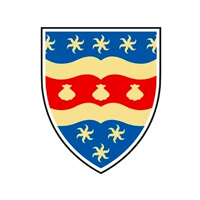fees waived
Mechanical Engineering, BEng (Hons)
University of Plymouth, United Kingdom
Ranking in UK
Engineering: Mechanical
Engineering
Mechanical Engineering
Costs
food & rent S$17k / year
Entry requirements
Scholarships
Unlimited quantity
Unlimited quantity
Unlimited quantity
Limited quantity
Information
Code
Code
Intakes
Website (External)
Programmes
Information
Duration
2029
Mechanical engineers solve complex problems across industries, from energy security to space exploration, by designing innovative tools and systems. This accredited BEng programme equips students with practical skills through laboratory sessions, physical demonstrations, and industry-linked teaching. It emphasises design, thermodynamics, and fluid mechanics, with options for a 'with composites' pathway or a paid placement year, enhancing employability in sectors like aerospace and manufacturing. Graduates often secure roles with competitive salaries and industry recognition.The course begins with foundational modules in mathematics, materials, and mechanics, followed by advanced topics in control systems and quality management. An optional industry year builds professional networks, while the final year allows specialisation in thermofluids, design, or composites. Accredited by the Engineering Council, it meets educational standards for Incorporated Engineer status and offers flexibility to switch disciplines.
In the first year of your mechanical engineering course, you will study alongside other engineering students to learn about the fundamental principles underpinning the subjects studied throughout the course. You will develop your mathematical skills and study engineering materials, structural mechanics and fluid mechanics. You will learn about generic design processes and computer-aided design, and work in a team to undertake a real-world design challenge. Laboratory sessions will form an important part of your learning. The second year introduces subjects like control systems engineering and quality management while further developing your thermodynamics, fluid mechanics, mathematics and design skills. These subjects are explored in lectures, in laboratory sessions and workshops. At this point, you can opt in to the 'with composites' pathway. By taking the opportunity to spend an optional year in paid employment whilst still a student engineer, you will obtain recordable professional experience, build a network of industry contacts and often obtain offers of summer work, sponsorship or employment on graduation. Our placements team will support you in finding a placement, and we have an extensive network of employers across all sectors. In your final year, you will deepen your understanding of computer aided engineering tools and control systems. You will also focus your specialism choosing to further your understanding of thermofluids and design methodology or choosing to study the theoretical and practical aspects of composites engineering on the 'with composites' pathway. Your dissertation project enables you to research the topics that interest you and will allow you to bring together all you have learnt so far. The modules shown for this course or programme are those being studied by current students, or expected new modules. Modules are subject to change depending on year of entry and up to date information can be found on our website
A local representative of University of Plymouth in Singapore is available online to assist you with enquiries about this course.

